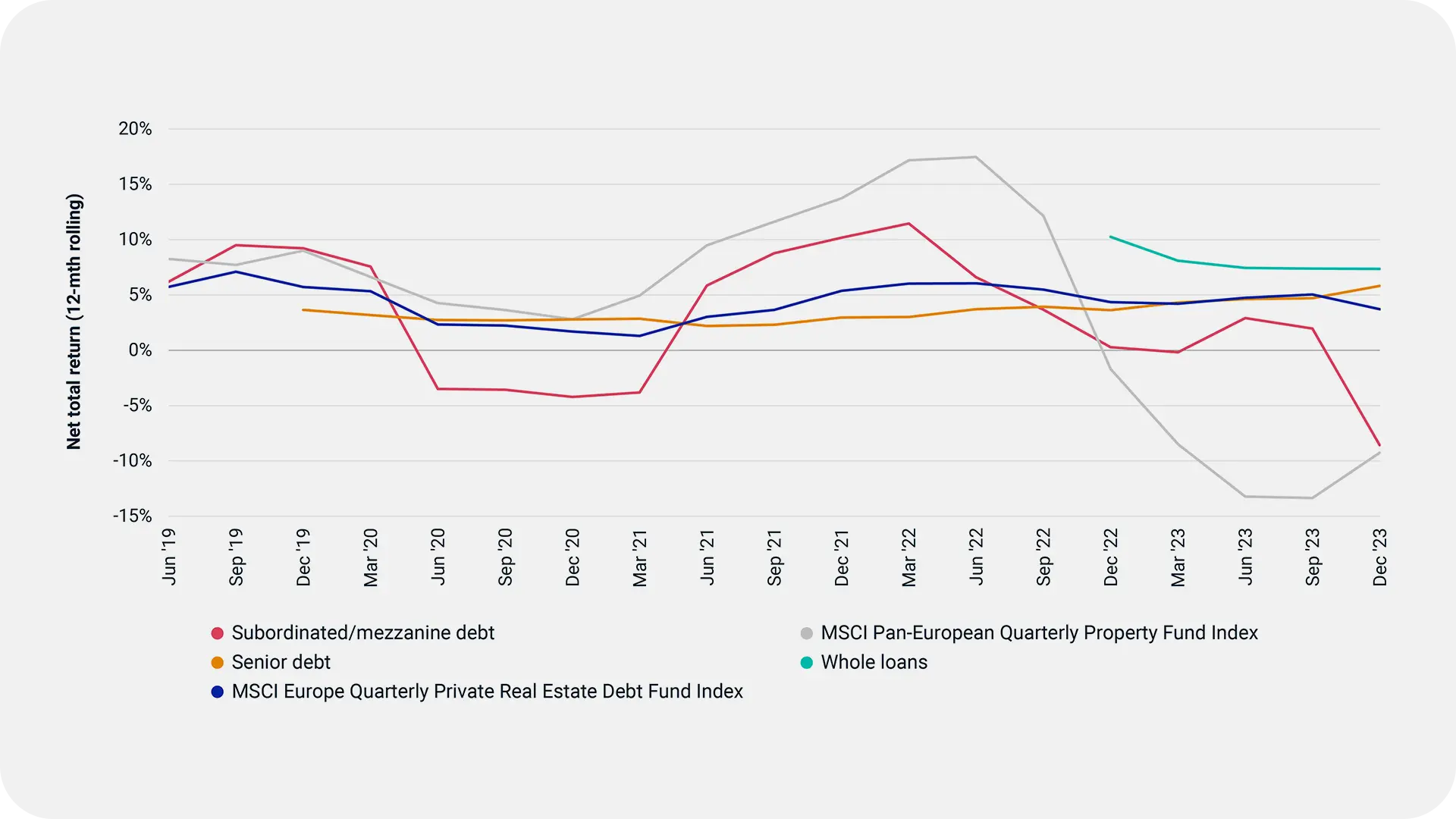 Credit: MSCI
Credit: MSCIHow Real Estate Debt Funds Have Fared in the Downturn
MSCI Europe Quarterly Private Real Estate Debt Fund Index
August 26, 2024Real Estate
While some real estate investors have been waiting for clear signals on when it may be prudent to dive back into the market during this period of heightened uncertainty, some have been paying closer attention to potentially more attractive opportunities further up the capital stack.
Real estate debt has attracted interest from investors in recent times due to the higher-interest-rate environment and the perception of more-stable returns in a period of falling values.
The performance was predominantly influenced by senior-lending funds, which returned 5.8% and constituted 53% of the net asset value (NAV) of the funds tracked by the index. Whole-loan funds also performed well, with a 7.4% return, making up 28% of the tracked NAV. In contrast, subordinated/mezzanine loan funds, which represent 16% of the NAV, experienced a decline, recording a -8.6% return for 2023.
This was slightly better than the MSCI Pan-European Quarterly Property Fund Index (PEPFI), which posted a -9.3% total return for the same period. The subordinated/mezzanine loan funds have shown a performance profile similar to equity funds over the debt index’s history. However, these loan funds were more severely affected than PEPFI funds during the COVID-19 crisis (which was driven by short-term disruption to income) but were slower to sink into negative territory during the current market correction.
Real estate debt funds more resilient than equity funds in 2023:

Real estate debt has attracted interest from investors in recent times due to the higher-interest-rate environment and the perception of more-stable returns in a period of falling values.
Performance across strategies
The notion of more-stable returns was borne out by the inaugural results of the newly launched MSCI Europe Quarterly Private Real Estate Debt Fund Index, which reported a return of 3.7% for the year ending December 2023.The performance was predominantly influenced by senior-lending funds, which returned 5.8% and constituted 53% of the net asset value (NAV) of the funds tracked by the index. Whole-loan funds also performed well, with a 7.4% return, making up 28% of the tracked NAV. In contrast, subordinated/mezzanine loan funds, which represent 16% of the NAV, experienced a decline, recording a -8.6% return for 2023.
This was slightly better than the MSCI Pan-European Quarterly Property Fund Index (PEPFI), which posted a -9.3% total return for the same period. The subordinated/mezzanine loan funds have shown a performance profile similar to equity funds over the debt index’s history. However, these loan funds were more severely affected than PEPFI funds during the COVID-19 crisis (which was driven by short-term disruption to income) but were slower to sink into negative territory during the current market correction.
Real estate debt funds more resilient than equity funds in 2023:

Availability of some sub-index returns can vary from index base date of June 2018. See index methodology. (Credit: MSCI)
To learn more about MSCI’s Quarterly Debt Fund Index, download the latest factsheet here.